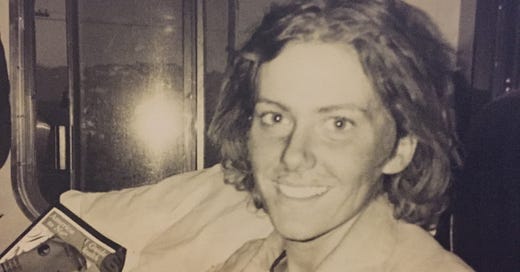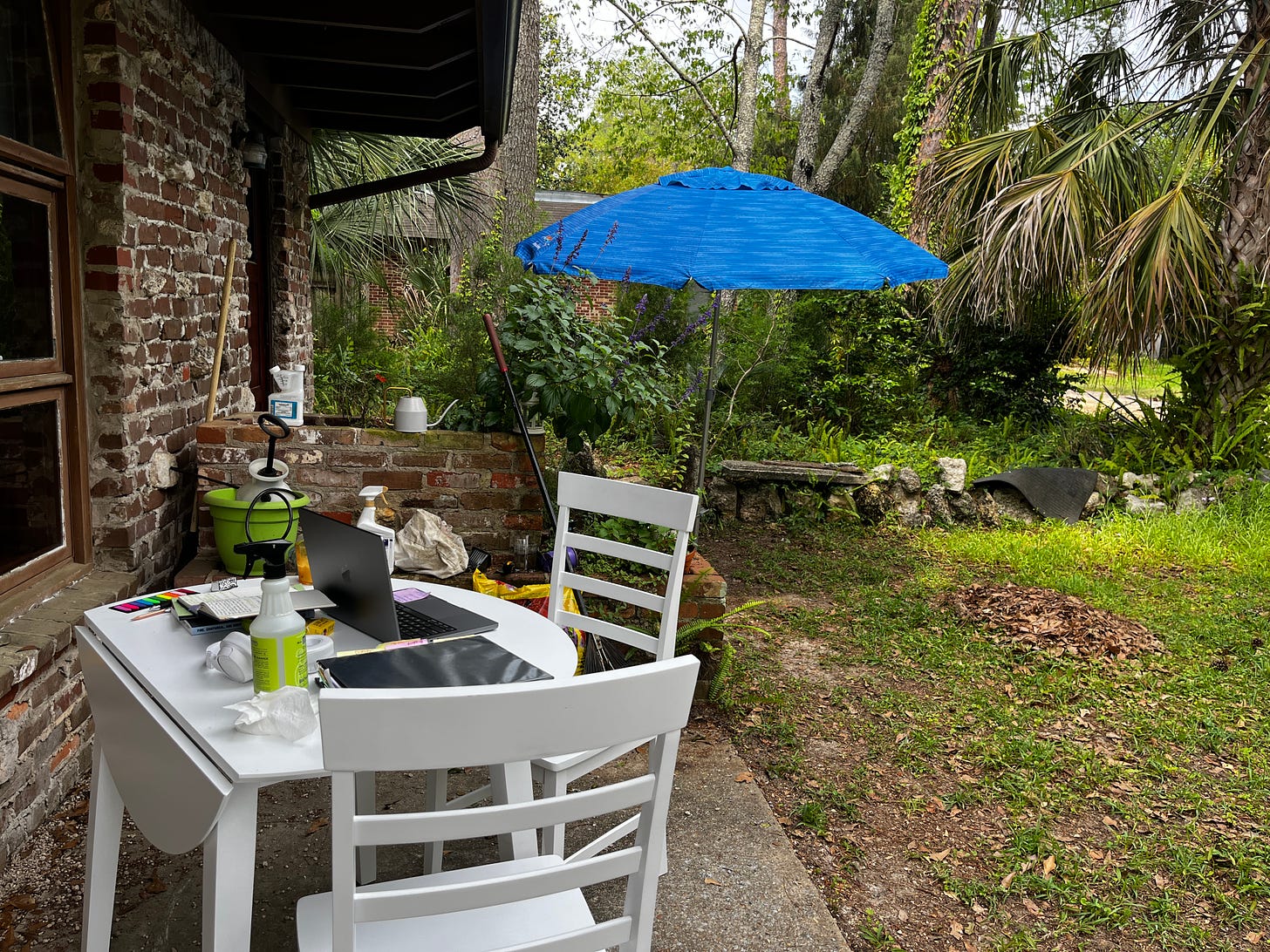Currently, I am sitting at my makeshift outdoor office. The wildflowers I planted in late winter are blooming in my yard and driveway; my cat Edna is sleeping on her cat tree, which I can see through the window. I’m writing this instead of working on my revisions— a short reprieve.
Each morning I get up at 6 am, make my tea, feed Edna, stretch, and come out here to work (unless it’s raining). My little cottage office is bright as a dungeon, and it feels better to be outside where the birds keep me company. On Monday I attended the last class of my graduate career. I’ll turn in my last paper in two days, then begin working on my book list for preliminary exams. I’m so looking forward to sharing that with you and being in this space more often.
I was supposed to turn in my revisions in January. Then I got an extension for May. I’ll be done on May 15th (fingers crossed). My editor wants the book to come out next summer but that’s up in the air, all contingent o…
Keep reading with a 7-day free trial
Subscribe to Gathering to keep reading this post and get 7 days of free access to the full post archives.





